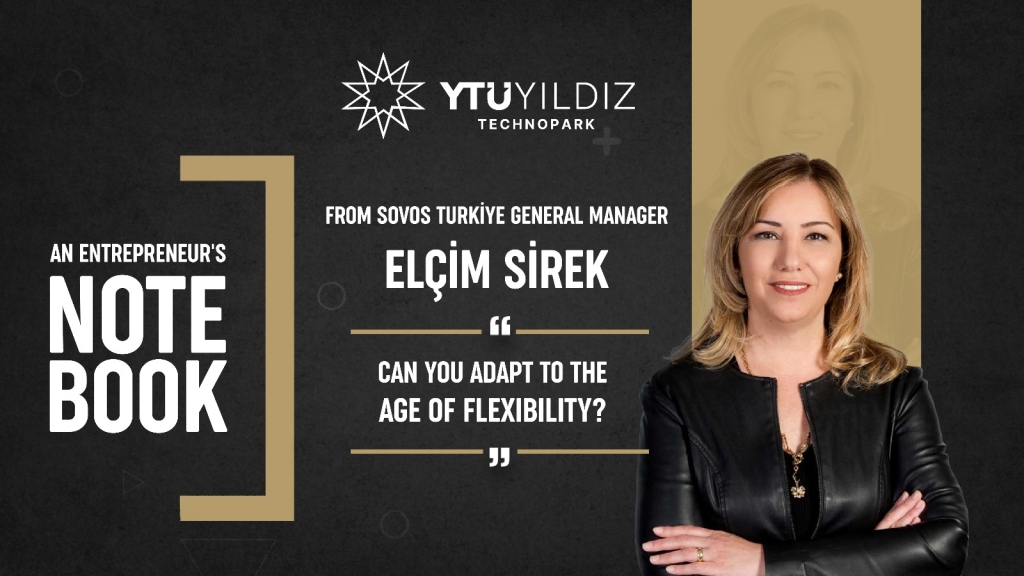Are You Adapting to the Age of Flexibility?

SOVOS Turkey General Manager Elçim Sirek wrote: Are you adapting to the Age of Flexibility?
The age we are in is such an age... Whatever business you are in, in order to survive in challenging conditions, for the future of your business; you have to get rid of the ropes that bind you tightly to your seat, your notebooks, your computer, your office, your city; you have to adapt to the benefits of digitalisation and globalisation. The essence of 'enterprise' and the spirit of 'entrepreneur' is born with such an adaptation. However, as the time goes by and the pace of business picks up, both the spirit and the soul can take a back seat, and flexibility can become a forgotten aspect for the enterprise in question, just as it is for other companies.
So how to be flexible?
There may be different forms of flexibility for each company, for each initiative, but I think that organisations that are able to focus on their core business, either by using certain systems or by taking some expertise with them, can achieve flexibility.
We also act with this focus in our work. We say: As a global tax software provider, we promise our customers a seamless solution to tax-related processes. Tax is a complicated business all over the world. The fact that an enterprise is very successful in its field, that a manager has mastered all management processes does not mean that they can also master tax-related regulations and requirements. This job requires expertise. Therefore, we should offer such a service that our customers should be able to completely hand over this issue to us and focus on their own business. We should guide them without their request on all issues such as what is new in e-Invoice, when they should start using e-Waybill, whether there are better technologies that they can prefer for faster data transfer. Flexibility is only possible if such important issues can be delegated to specialists or if consultancy is sought.
And of course digitising the work and the process... I have no doubt about this: The more digital you are, the more flexible you are...
At the beginning of May, the World Economic Forum published its classic report Future of Jobs 2023. This report also emphasised the importance of technology adaptation, digitalisation, keeping and processing data in end-to-end digital systems.
The report states:
• More than u of companies want to adopt cloud computing, big data and artificial intelligence technologies in the next five years. As I have often stated, handling data as a whole with end-to-end systems and drawing meaningful conclusions from them are both valuable and necessary activities that are now a necessity.
• Major encryption and cyber security, data analytics, climate change and environmental management technologies are expected to be the largest drivers of business growth.
• And the impact of all this is expected to change nearly a quarter of jobs in the next 5 years. In 2027, 69 million new jobs will have been created, but 83 million jobs are expected to disappear. Office jobs such as working in a bank, secretarial and cashiering are among the fastest to disappear.
While moving with the expectation of such a future, change and transformation seem inevitable...
As I said at the beginning of my article, the age we are in is the age of flexibility... The age of those who can be flexible, who can be part of the transformation... Flexibility is what we need to ensure the sustainability of both our own businesses and our organisations in all these transformations we are going through. This concept is also in the top three in the "most important skills" prioritisation of companies for the next 5 years. In other words, it is something that everyone is aware of its importance, but not everyone can implement it.
I think it will make a difference to gain this feature at the venture stage and make it a company culture. I believe that entrepreneurs should remember this word by writing it down in a notebook, reading it frequently and asking the question "How?".





